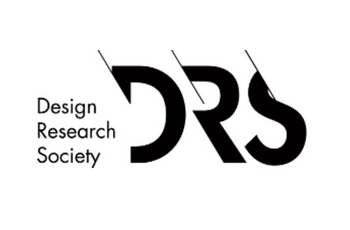Thank you for your message. The IPPA team will get back to you shortly. You first need to login here.



TRACK THEME: Design for Policy and Governance: New Technologies, New Methodologies (#26)
CONFERENCE: DRS2022 BILBAO, 25th June – 3rd July
FORMAT: Hybrid
DUE DATE: Submissions due 24th November 2021
INFORMATION: https://www.drs2022.org/papers/
TRACK-CHAIRS & REVIEWERS
• Scott Schmidt, School of Continuing Studies, Georgetown University, USA (Convener)
• Dr. Michael Howlett, Burnaby Mountain Professor and Canada Research Chair, Simon Fraser University, Canada
• Dr. Marzia Mortati, Department of Design, Politecnico Milano, Italy
• Louise Mullaugh, ImaginationLancaster, Lancaster University, UK
• Dr. Nicos Souleles, Art+Design: elearning lab, DISCERN International Journal of Design for Social Change, Sustainable Innovation and Entrepreneurship, Cyprus University of Technology, Cyprus
CONTACT
• Scott Schmidt, School of Continuing Studies, Georgetown University, USA (Convener) PoGoSIG.DRS@gmail.com
ABSTRACT
As the official track of the DRS Design for Policy and Governance Special Interest Group (PoGoSIG), we will aim to critically explore and define the relationship between policy and design. Presently, the topic is very much open for debate as to how these two concepts differ, relate, and interact with one another. There exists very little agreement on their relational trajectory with one course, policy design, originating in the policy studies tradition while the other, design for policy, being founded in design studies. The former sees the need for policy to instrumentally embody a conscious design of its own making while the later holds that design is a pre-existing field of study unto itself that can be employed in accordance with policy formation (Bason, 2014; Howlett, 2019).
Although explicitly connected to the same subject matter, each direction is built upon differing criteria and parameters thus creating two unique starting points which at times overlap and at other times deviate considerably. Recently, the design research community has been particularly active and has developed knowledge useful to manage complex processes, characterized by the participation of actors with different interests and cultures, in which the final recipients often have an active role as co-creators and co-producers (Sangiorgi & Prendiville, 2017; Mortati, et al., 2018). Innovative services and governance models are thus being explored and developed by designers within the public sector, either built from the bottom up (collaborative services) (Deserti et al., 2020) or trialing the role and relevance of new and disruptive technologies (AI, Virtual Reality, Blockchain, …) (Kuziemski & Misuraca, 2020).
This track pays particular attention to these new and upcoming areas of research where design disciplines and policy studies are exploring new ways toward convergence. This involves in particular the examination of ways in which creativity-based methodologies (i.e. co-creation and co-production) are being used also in conjunction with new technologies (i.e. big data and algorithms) to deliver better policies and services.
How are these methods reconciling the perspectives of government, citizens and society (i.e. participation in policymaking)? What makes them specific to policy making? What role is design having in exploring the uptake of new technologies for policy making and public service implementation? How is design helping complement a human approach into the typical need for quantitative evidence of Government?
(This DRS track offers an international focus on practice and methodology and is complemented by the much more narrowly focused DRS track Uncertainty and Incompleteness in the Design of Public Policy and Administration.)


Thank you for your message. The IPPA team will get back to you shortly. You first need to login here.